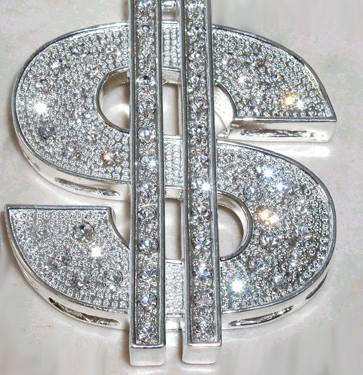The bunfight for Nortel’s patent chest concluded yesterday, with Chief Strategy Officer George Riedel’s announcement that “following a very robust auction”, the winning bid came from a buyer too big for even Google to take on. Following months of speculation and a $900m kick-off bid from Mountain View, the booty has gone to a consortium that reads like a Who’s Who of the tech industry: Apple, EMC, Ericsson, Microsoft, RIM and Sony. Even with names like that in the mix, the $4.5bn price paid is still pretty eye-watering or, as Nortel’s Riedel preferred to put it, “unprecedented.”
July 1, 2011

The bunfight for Nortel’s patent chest concluded yesterday, with Chief Strategy Officer George Riedel’s announcement that “following a very robust auction”, the winning bid came from a buyer too big for even Google to take on.
Following months of speculation and a $900m kick-off bid from Mountain View, the booty has gone to a consortium that reads like a Who’s Who of the tech industry: Apple, EMC, Ericsson, Microsoft, RIM and Sony. Even with names like that in the mix, the $4.5bn price paid is still pretty eye-watering or, as Nortel’s Riedel preferred to put it, “unprecedented.”
Swedish kit-making giant Ericsson has confirmed its contribution of $340m to the deal; RIM is reported to have stumped up $770m, with no news yet on how much Microsoft or Apple have contributed, or how the spoils are to be shared out. According to a statement from Ericsson Chief Intellectual Property officer Kasim Alfalahi, the company believes the consortium is “in the best position to utilise the patents in a manner that will be favourable to the industry in the long term.”
Whether the long-term favourability will include Google remains to be seen, however. Since the search giant’s forays into the mobile and desktop operating systems space, it has come under increasing attack from rivals claiming its technologies infringe on their patent holdings. Oracle is currently chasing the company down directly over claims that Android infringes on Java, seeking over $6bn in damages.
Other rivals such as Apple and Microsoft have taken a less direct approach, suing Google partners such as HTC and Motorola over alleged Android infringements. Microsoft, for its part, has successfully turned Android into a cash-cow for Redmond: estimates from Citi and Asymco suggest the company makes five times more money collecting Android-related patent royalties from HTC than it does from sales of its home grown Windows 7 phone.
Along with HP, Motorola and Nokia, Microsoft had been opposed to Google’s attempt to purchase the Nortel patents. The company had said that, under the terms of a 2006 deal, it had a “worldwide, perpetual, royalty-free license to all of Nortel’s patents” and that this agreement was binding, regardless of who owned the IP. Under those circumstances, it’s difficult to understand why Redmond would stump up a lot of money to buy-in to the consortium – other than to use as weaponry in a potential smack-down with Google . The potential revenue stream to be derived from cross-licensing agreements for effectively doing very little in the R&D department is no doubt a further source of appeal to the members of the consortium.
According to Ericsson, the deal is expected to close in the third quarter of this year, providing it can gain the approval of both the Canadian and US courts. A joint hearing on that is expected to take place on July 11th. The patents involved cover wireless, LTE, social networking and search technologies and optical networking, among others. Despite the massive cash injection from the sale, Nortel has said it’s unlikely that regular shareholders will see any return on it after its other bankruptcy commitments are met.
You May Also Like






.png?width=300&auto=webp&quality=80&disable=upscale)


_1.jpg?width=300&auto=webp&quality=80&disable=upscale)


.png?width=800&auto=webp&quality=80&disable=upscale)